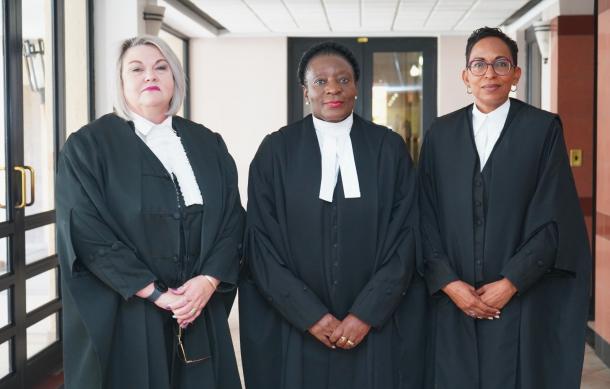
The Supreme Court today reserved judgement in a case that has been running for over 20 years, in which a litigant refuses to part with his house after a default judgement was issued by the Registrar of the High Court in 2001.
Hewat Beukes and his spouse, Erica Beukes, approached the Supreme Court to grant an order declaring the registrar's directives to sell their house invalid.
The couple has been running between the High Court and the Supreme Court to rescue their property and has now ended up at the apex court for the second time. For the first time ever, an all-female bench of the Supreme Court presided over the appeal.
Lady Justices Rita Makarau, Hannelie Prinsloo, and Esi Schimming-Chase were hearing the appeal matter of Hewat Beukes and his spouse against the President of Namibia and others, including legal practitioners Patrick Kauta and Nedbank.
Beukes argued that he was challenging the constitutionality of the High Court rule that granted the Registrar of the Court powers to declare his property executable. He submitted that the Registrar did not have judicial powers, and therefore the 2001 default judgement was void.
He emphasised that judicial powers rest with the courts and not with administrative officers such as the registrar.
Advocate Thabang Phatela, who appeared for Kauta and Nedbank, said the new owners of the house could not take ownership of their property because the appellants refused to move out of it for more than two decades.
He further said that Beukes did not pay a single cent for occupying the house for this period. However, Beukes claimed in his rebuttal that he had settled his bond with Swabou.
Advocate Phatela further said that the registrar acted legally in terms of the rules of the High Court that existed at the time. After arguments by both Beukes and Advocate Phatela appearing for some of the respondents were heard, the Supreme Court reserved judgement.





